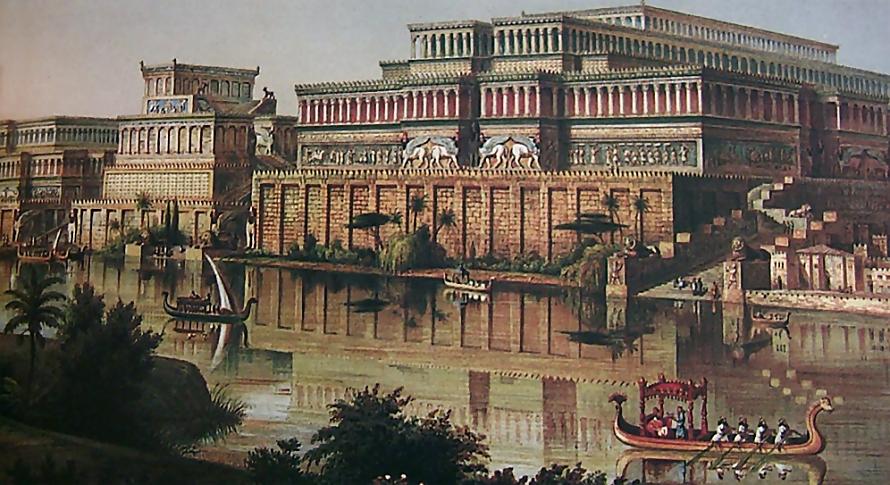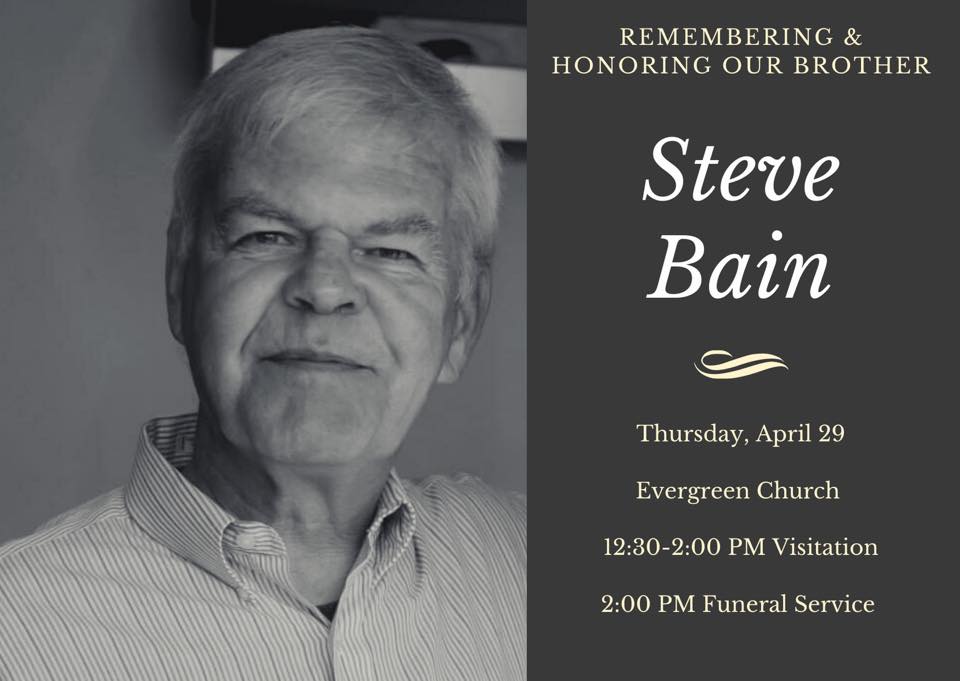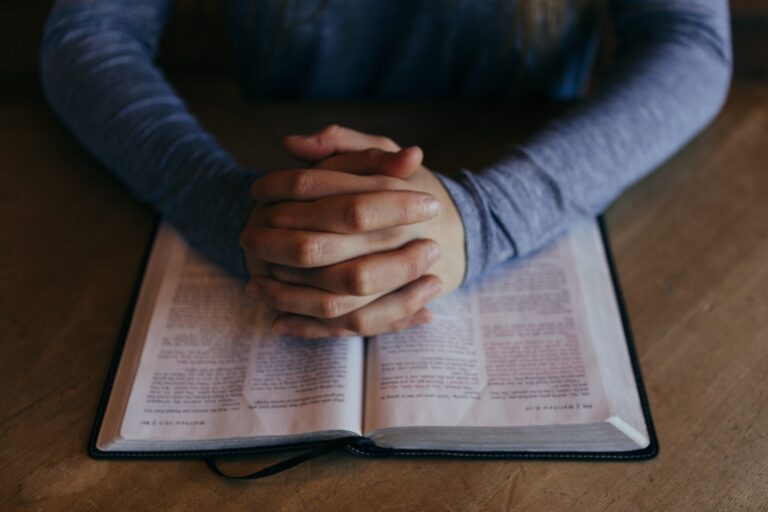
[Listen to an audio version here]
I’ve seen it so many times. Someone has been struggling with sin for a long time, and then they make the resolution. They are going to walk in the light and turn away from the darkness. They know they have done wrong. They are committed to doing right. They are excited. It’s a new way of life. They are moving forward. They have put the old way behind them.
Only, that’s not how it works out. They go back. They fall into the same old sin. They are devastated and begin to despair. How could this happen when they had resolved to do what was right? They feel shame because they failed again. And again. And again. And again.
What are they supposed to do? How does such a person live in joyful fellowship with God and man? This person may sound familiar. If so, it’s because anyone who has been a Christian for a long period of time has probably experienced falling into sin in spite of his resolution. So, the question is, what is that person supposed to do when he falls into sin? What are we supposed to do?
I want you to fix this passage in your mind because it is a resource that you can go to again and again and again when you find yourself overcome by the darkness and falling into sin. This passage is a refuge for those who’ve failed and who feel shame and condemnation.
Walking in the Light
“This is the message we have heard from him and declare to you: God is light; in him there is no darkness at all” (1 John 1:5). What a beautiful picture of God. It’s so clear that it hardly needs explanation. He is the one who is light without any darkness. It’s a powerful image that shows how blessed, how wise, how holy, and how joyful God is. God is absolutely perfect without any imperfection whatsoever.
So, what does this mean for fellowship with God? The conclusion should be relatively obvious. If we want to have fellowship with Him, then we must walk in the light as He is in the light. In fact, as John says, “If we claim to have fellowship with him and yet walk in the darkness, we lie and do not live out the truth” (1 John 1:6). It is one thing to claim to have fellowship with God. It is another thing to actually have it. Many people claim it, but not all of them have it. If we have this fellowship, then we must walk in the light as He is in the light.
Now, what does it mean to walk in the light? To walk in the light means something similar to what it means for God. First, walking in the light means that we find our light, joy, and life in God Himself and in His Son Jesus Christ. This is what Jesus said in John 8:12, “I am the light of the world. Whoever follows me will never walk in darkness, but will have the light of life.” So, to walk in His light is to be enlightened by Jesus Himself.
Second, walking in the light means that we seek to know the truth that He has revealed to us and to walk in His wisdom.
Third, walking in the light means that we seek to walk in holiness and purity. We should try to have everything in our lives aligned with God’s purposes. That’s what purity means. That’s what holiness means.
Fourth, walking in the light means that we also have fellowship with one another. Notice: “But if we walk in the light, as he is in the light, we have fellowship with one another . . .” (1 John 1:7). Those who walk in the light not only enjoy fellowship with God but open up the door to fellowship with human beings. We will explore this more in later sermons.
Does walking in the light mean that we have no darkness in us at all? No, we still have sin, but Jesus cleanses us and purifies us from all sin. “But if we walk in the light, as he is in the light, we have fellowship with one another, and the blood of Jesus, his Son, purifies us from all or every sin” (1 John 1:7). “All” here does not mean every sin intensively as if we have no sin at all, as we shall see, but rather all extensively. What that means, please note, is that there is no sin so great that the the blood of Jesus cannot cleanse it.
And from there, John leads us to a greater consideration of the darkness that still remains in us.
Confronting the Darkness
John believes that we can walk in the light and still have darkness present with us. In fact, if anyone say they have no darkness within them, they are completely deceived. Listen to what he says, “If we claim to be without sin, we deceive ourselves and the truth is not in us. . . . If we claim we have not sinned, we make him out to be a liar and his word is not in us” (1 John 1:8, 10). John firmly shuts the door on any sort of perfectionism. Anything else we study in this book has to take into account this truth: sin still remains in the believer.
This is such an important truth for us to recognize. It should humble us, but we can easily forget it. People are always shocked to find that there is sin within the church as well as outside of it. Some of this comes from the fact that there are people who say they know God but actually are still in the darkness. However, even if the church was composed 100% of true believers, there would still be sin within the church. There is always some corruption in this life. We should never look at where we are and say that it can’t be better, but we should also never look at where we are and say that we have arrived. We are always on the way. There is always some imperfection and some sin remaining within us.
We have to especially be on guard when there is some obvious sin in the world like abortion, racism, or sexual immorality. It’s easy to look at clear sins outside of us and compare ourselves to other people. We must always remember that darkness remains within us, and the fact that others walk in darkness greater than our own in no way excuses our own darkness. That’s what we have to be really careful about in our polarized situation in our nation. It’s easy to become focused on the sins of the other side.
So, what are we to do? We should confess our sins. That means we should acknowledge our sinfulness in general and in particular. I have been using the Book of Common Prayer as an aid to my devotional life. I highly recommend it. There is a form for Morning and Evening Prayer services. At the beginning of each one, there is a confession of sin and a declaration of forgiveness of sins. Every morning. Every night. It’s worth thinking about. This is what Jesus encourages us to do when He tells us to pray, “Forgive us our debts, as we forgive our debtors.”
And what happens if we acknowledge our sinfulness and confess our sins? Here’s the glorious message: “If we confess our sins, he is faithful and just and will forgive us our sins and purify us from all unrighteousness” (1 John 1:9). What a glorious word!! Praise be to God. All we have to do is acknowledge it, and it will be dealt with. As one friend said to me when I confessed a sin to him one time, God will not bring it up again. It’s over.
Our Hope When We Sin
And how is it that God can forgive us so easily and readily? Because we have an advocate with the Father. We have someone who pleads our case.
Notice what John says so beautifully in 1 John 2:1. He says, “My dear children, I write this to you so that you will not sin.” We should do all in our power to avoid sin and constantly seek God’s grace that He would lead us not into temptation but deliver us from evil. We do not want to sin.
However, we know that we will fall into sins, sometimes terrible sins. Then, what are we to do? “But if anybody does sin, we have an advocate with the Father—Jesus Christ, the Righteous One.” We have someone to plead our case. Now, I want you to pay very careful attention to these words. Fix them in your minds and hearts. Get what is said here. Think about it. What would we expect it to say? If anyone does not sin, THEN we have an advocate with the Father. That’s what would make sense. That’s the case that Jesus would want to argue, it would seem to us. But no, it says this: if we do sin, if we commit the crime, THEN we have an advocate! How in the world can this be?
The answer: because Jesus has taken it upon Himself to deal with that sin. He is a propitiatory sacrifice. His sacrifice turns away the wrath of God because the punishment He suffered is more than adequate as a substitute for the punishment we deserve. It is fully sufficient to cover our sin and indeed the sin of the whole world, as John says. There is no sin too great that it could be so bad that the blood of the Son of God could not cover it. That’s the amazing truth! He pleads our case. As Charles Wesley put it so well:
Five bleeding wounds He bears,
Received on Calvary;
They pour effectual pray’rs,
They strongly plead for me:
“Forgive him, O forgive, ” they cry,
“Forgive him, O forgive, ” they cry,
“Nor let that ransomed sinner die!”
That’s what Jesus is doing before the throne of God.
And, so, dear friends, we are called to walk in the light. We do not want to sin. That should always be our heart.
But if we do? This is what I want you to do with this sermon. I want you to take the truths of this passage and keep them with you. When the weight of sin comes upon you, I want you to remember that when you sin, you have an advocate! Not when you don’t sin but when you sin! That advocate is Jesus Christ the Righteous One! I want you to remind yourself of this, and I want you to remind others of this truth when they confess their sins to you.
The glorious truth is that no sin whatsoever can keep us from walking in the light and experiencing God’s love because He is faithful to His promises and completely righteous. He will forgive us our sins and cleanse us from all unrighteousness. Hallelujah! Amen.
Benediction: My friends, our goal this week is not to sin. We want to walk in the light just as He is in the light.
But when the darkness comes upon us, and we sour sin, remember! We have an advocate with the Father, Jesus Christ the Righteous One! He is pleading our case, taking into full account our sins against Him.
Because of His propitiatory sacrifice, we can stand completely forgiven and righteous before the throne of God! So, go in peace. Your sins are forgiven you. Your faith has saved you. Amen.









